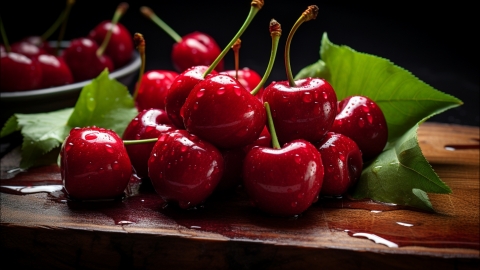Can cherries be used to make wine?
Under normal circumstances, cherries can be used for winemaking. Cherries contain abundant natural sugars and natural yeast, along with distinctive flavor and aroma characteristics. Through refined winemaking techniques and appropriate fermentation control, cherry wine with unique taste and fragrance can be produced. A detailed analysis is as follows:

Cherries contain rich natural sugars, which serve as an important substrate for yeast fermentation during the winemaking process. Sugars are converted into alcohol and carbon dioxide by yeast. Natural yeast is also present on the surface and inside the flesh of cherries. Under suitable conditions, this yeast can actively ferment, converting the sugars in cherries into alcohol and imparting unique flavor and aroma to cherry wine. Cherries themselves have distinctive flavors and aromas that can be well preserved during the winemaking process, adding unique taste and appeal to cherry wine. At the same time, cherries have vibrant colors, which can provide attractive hues to the wine.
Winemaking techniques are also key factors in determining whether cherries can be successfully fermented into wine. Through appropriate processing steps such as raw material preparation, fermentation control, aging, and storage, cherry wine with unique taste and aroma can be produced. These techniques ensure complete fermentation of the sugars in cherries while preserving and enhancing their unique flavor and aroma.
In the winemaking process, attention should be paid to the selection of raw materials, control of fermentation conditions, and hygiene. Drinking cherry wine in moderation can benefit health, but excessive consumption may have negative effects on health.








